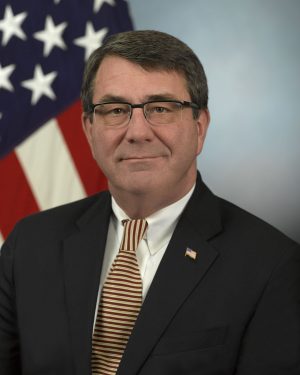As usual, a curated list of some interesting defense and security pieces you may have missed during the week:
In a decision that will surprise few, the U.S. Senate voted 93-5 on Thursday to confirm Ashton Carter as the next U.S. Defense Secretary. Carter, who will succeed Chuck Hagel, holds a reputation as a wonkish and outspoken defense thinker. As I recently commented over at The Debate, Carter may be the kind of defense secretary to push back against the White House on critical issues. Carter does seem to carry a high degree of bipartisan approval, as seen by his confirmation vote. Republican hawks appreciate his willingness to “speak truth to power,” so to speak, against a president they have little faith in, and Democrats see him as a smart and capable defense secretary who’ll likely remember that “he’s going to be working for the White House and the president” (in Sen. Joe Manchin’s (D-WV) words). Carter’s approach to the rebalance or “pivot” to Asia remains to be seen. Working under Hagel, Carter did mastermind some important defense initiatives — particularly with regard to India. However, Hagel has left big shoes to be filled when it comes to a proactive approach to Asia-Pacific issues.
Vice News takes a look at the trafficking of Yaba, Asia’s “madness drug.” A combination of methamphetamine and caffeine, Yaba is popular with hard-working school students in Bangladesh among other users. Recently a shipment with a street value of $10.6 million was seized by Bangladeshi authorities en route from Myanmar to Chittagong.
Over at Foreign Policy, Justine Drennan looks at China’s chicken-and-egg problem in dealing with terrorism: “Beijing says radicalized members of its Uyghur minority are terrorists with ties to the Islamic State and al Qaeda, but its repressive policies may be helping to fuel the violence.”
The United States and South Korea want you to know that their decision to downsize an amphibious drill has everything to do with prescient military planning and nothing at all to do with North Korean chest-thumping and demands. The Ssang Yong “twin dragon” exercise will have a few thousand fewer participants than it did last year.
A commentary over at Defense News makes the case that Taiwan’s “political transformation” addresses the challenges China faces in projecting force across the Taiwan Strait. Interestingly, the author argues that current Chinese visitors to Taiwan could be converted into “undercover” troops prior to an invasion: “Only one percent of Chinese visitors is tantamount to two divisions and more than one percent of those visitors could be involved in a military action against Taiwan. Their non-combatant guise could create more strategic and tactical surprises to Taipei than regular troops.” In 2014, three million Chinese visited Taiwan.

































